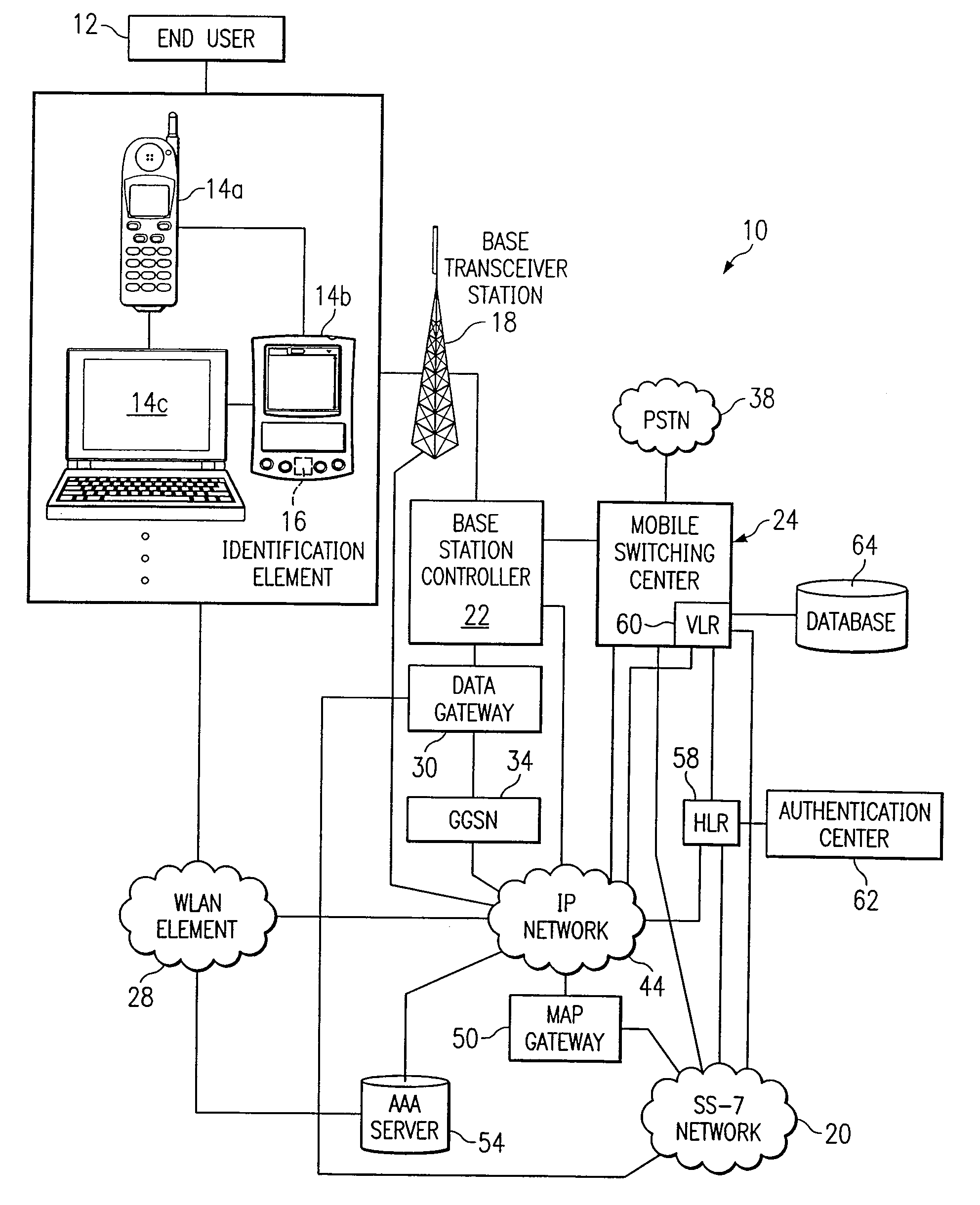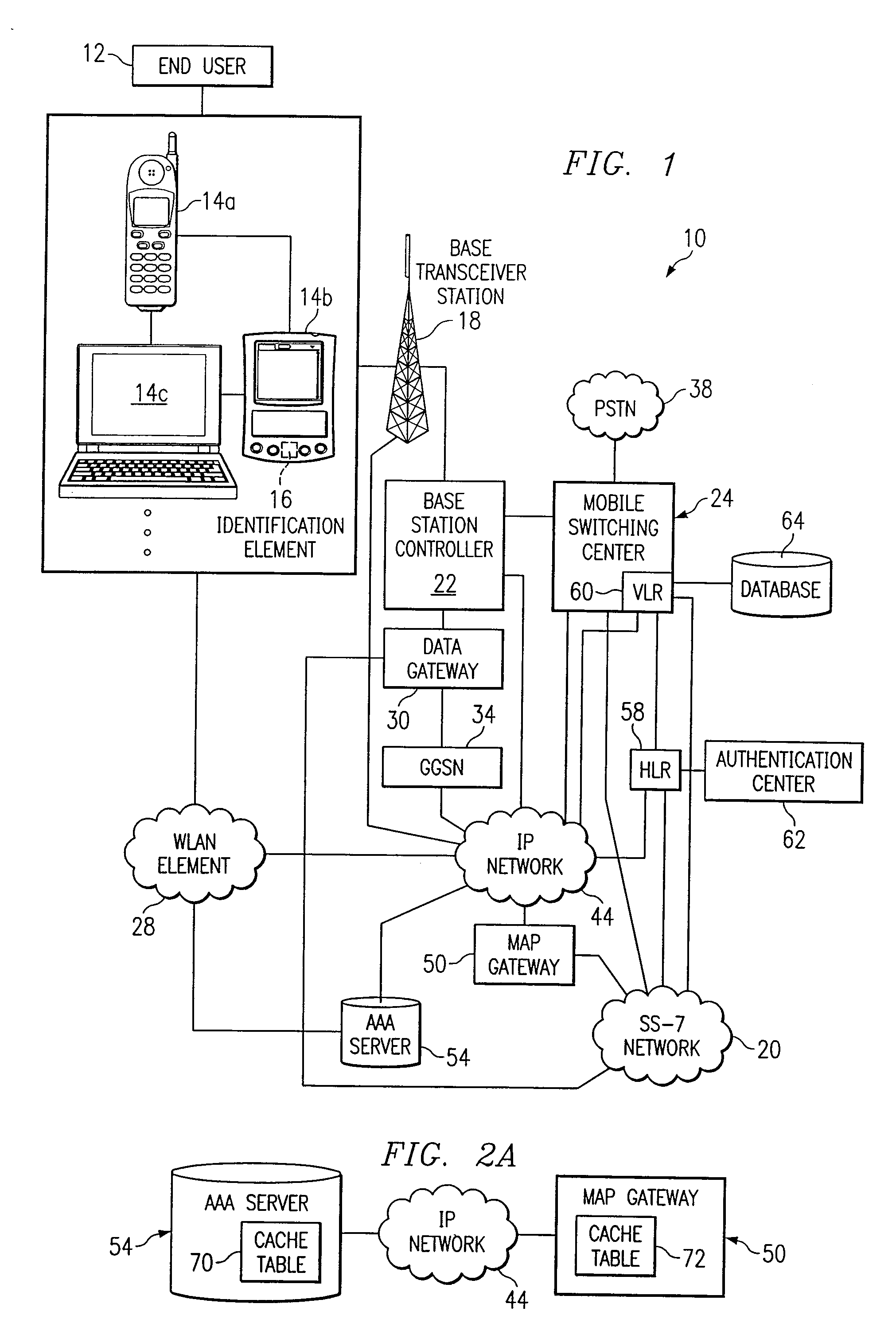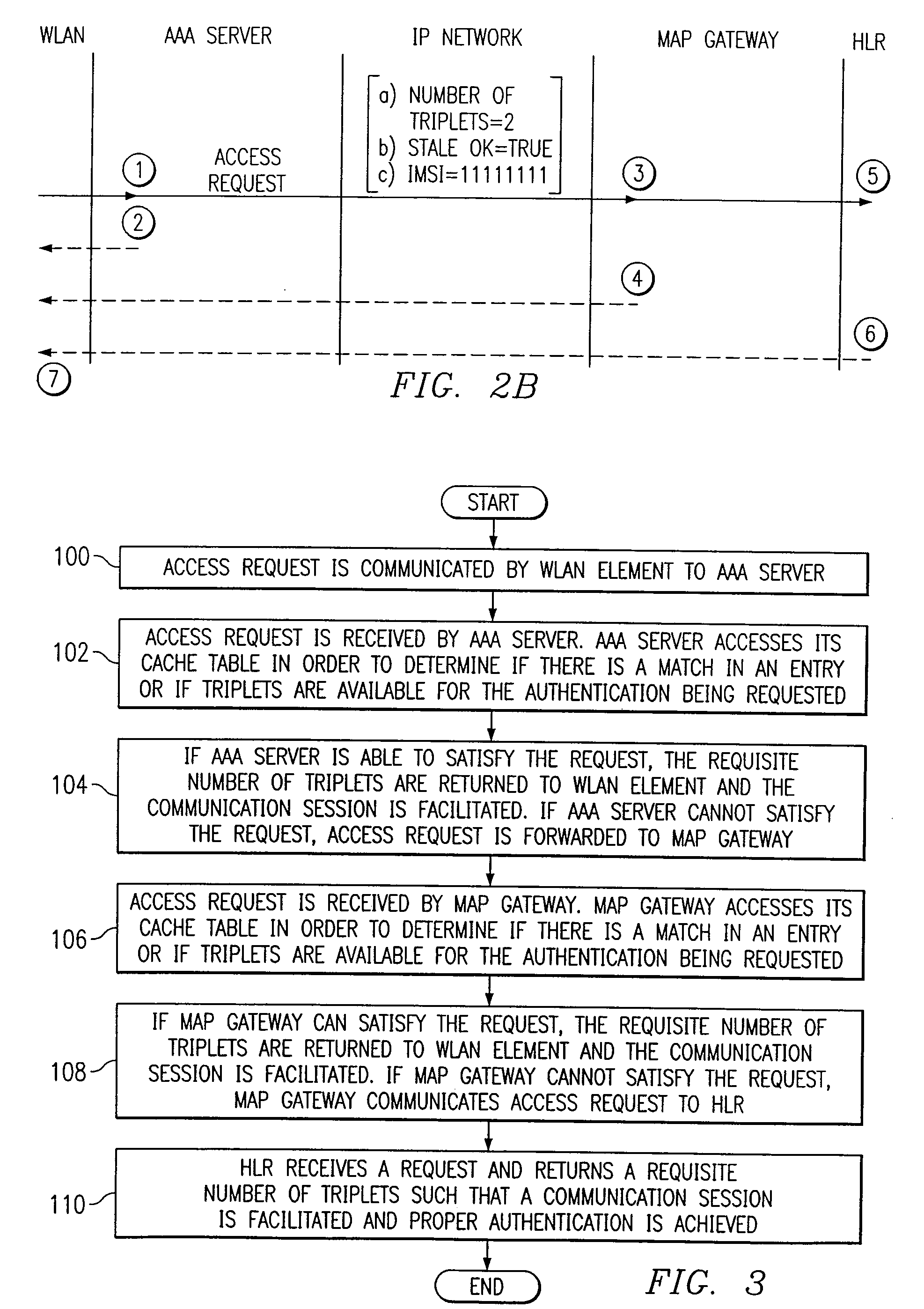System and Method for Authenticating an Element in a Network Environment
a network environment and element authentication technology, applied in the field of communication, can solve the problems of affecting affecting the and deteriorating system performance, so as to facilitate a communication session, reduce traffic, and enhance the propagation speed of communication requests and responses.
- Summary
- Abstract
- Description
- Claims
- Application Information
AI Technical Summary
Benefits of technology
Problems solved by technology
Method used
Image
Examples
Embodiment Construction
[0014]FIG. 1 is a simplified block diagram of a communication system 10 for authenticating an end user 12 (or an element associated therewith) in accordance with one embodiment of the present invention. Communication system 10 includes end user 12, an example set of communication elements that includes a mobile station 14a, a personal digital assistant (PDA) 14b, and a laptop 14c (any one of which may include an identification element 16), a base transceiver station 18, an SS-7 network 20, a base station controller 22, and a mobile switching center 24. Communication system 10 also includes a wireless local area network (WLAN) element 28, a data gateway 30, a gateway general packet radio service (GPRS) support node (GGSN) 34, a public switched telephone network (PSTN) 38, and an internet protocol (IP) network 44. Communication system 10 additionally includes a mobile application part (MAP) gateway 50, an authentication, authorization, and accounting (AAA) server 54, a home location r...
PUM
 Login to View More
Login to View More Abstract
Description
Claims
Application Information
 Login to View More
Login to View More - R&D
- Intellectual Property
- Life Sciences
- Materials
- Tech Scout
- Unparalleled Data Quality
- Higher Quality Content
- 60% Fewer Hallucinations
Browse by: Latest US Patents, China's latest patents, Technical Efficacy Thesaurus, Application Domain, Technology Topic, Popular Technical Reports.
© 2025 PatSnap. All rights reserved.Legal|Privacy policy|Modern Slavery Act Transparency Statement|Sitemap|About US| Contact US: help@patsnap.com



